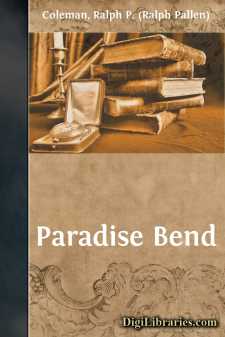Categories
- Antiques & Collectibles 13
- Architecture 36
- Art 48
- Bibles 22
- Biography & Autobiography 813
- Body, Mind & Spirit 142
- Business & Economics 28
- Children's Books 17
- Children's Fiction 14
- Computers 4
- Cooking 94
- Crafts & Hobbies 4
- Drama 346
- Education 46
- Family & Relationships 57
- Fiction 11829
- Games 19
- Gardening 17
- Health & Fitness 34
- History 1377
- House & Home 1
- Humor 147
- Juvenile Fiction 1873
- Juvenile Nonfiction 202
- Language Arts & Disciplines 88
- Law 16
- Literary Collections 686
- Literary Criticism 179
- Mathematics 13
- Medical 41
- Music 40
- Nature 179
- Non-Classifiable 1768
- Performing Arts 7
- Periodicals 1453
- Philosophy 64
- Photography 2
- Poetry 896
- Political Science 203
- Psychology 42
- Reference 154
- Religion 513
- Science 126
- Self-Help 84
- Social Science 81
- Sports & Recreation 34
- Study Aids 3
- Technology & Engineering 59
- Transportation 23
- Travel 463
- True Crime 29
Jacqueline of Golden River
Description:
Excerpt
CHAPTER I
As I sat on a bench in Madison Square after half past eleven in the evening, at the end of one of those mild days that sometimes occur in New York even at the beginning of December, a dog came trotting up to me, stopped at my feet, and whined.
There is nothing remarkable in having a strange dog run to one nor in seeing the creature rise on its hind legs and paw at you for notice and a caress. Only, this happened to be an Eskimo dog.
It might have been mistaken for a collie or a sheepdog by nearly everybody who saw it, though most men would have turned to admire the softness of its fur and to glance at the heavy collar with the silver studs. But I knew the Eskimo breed, having spent a summer in Labrador.
I stroked the beast, which lay down at my feet, raising its head sometimes to whine, and sometimes darting off a little way and coming back to tug at the lower edge of my overcoat. But my mind was too much occupied for me to take any but a perfunctory interest in its manoeuvres. My eight years of thankless drudgery as a clerk, following on a brief adventurous period after I ran away to sea from my English home, had terminated three days before, upon receipt of a legacy, and I had at once left Tom Carson's employment.
Six thousand guineas—thirty thousand dollars—the will said. I had not seen my uncle since I was a boy. But he had been a bachelor, we were both Hewletts, and I had been named Paul after him.
I had seen for some time that Carson meant to get rid of me. It had been a satisfaction to me to get rid of him instead.
He had been alternately a prospector and a company promoter all the working years of his rather shabby life. He had organized some dubious concerns; but his new offices on Broadway were fitted so unostentatiously that anyone could see the Northern Exploitation Company was not trying to glitter for the benefit of the small investor.
Coal fields and timber-land somewhere in Canada, the concession was supposed to be. But Tom was as secretive as a clam, except with Simon Leroux.
Leroux was a parish politician from some place near Quebec, and his clean-shaven, wrinkled face was as hard and mean as that of any city boss in the United States. His vile Anglo-French expletives were as nauseous as his cigars. He and old Tom used to be closeted together for hours at a time.
I never liked the man, and I never cared for Carson's business ways. I was glad to leave him the day after my legacy arrived.
He only snorted when I gave him notice, and told the cashier to pay me my salary to date. He had long before summed me up as a spiritless drudge. I don't believe he gave another thought to me after I left his office.
My plans were vague. I had been occupying, at a low rental, a tiny apartment consisting of two rooms, a bath, and what is called a "kitchenette" at the top of an old building in Tenth Street which was about to be pulled down. Part of the roof was gone already, and there was a six-foot hole under the eaves.
I had arranged to leave the next day, and a storage company was to call in the morning for my few sticks of furniture....





